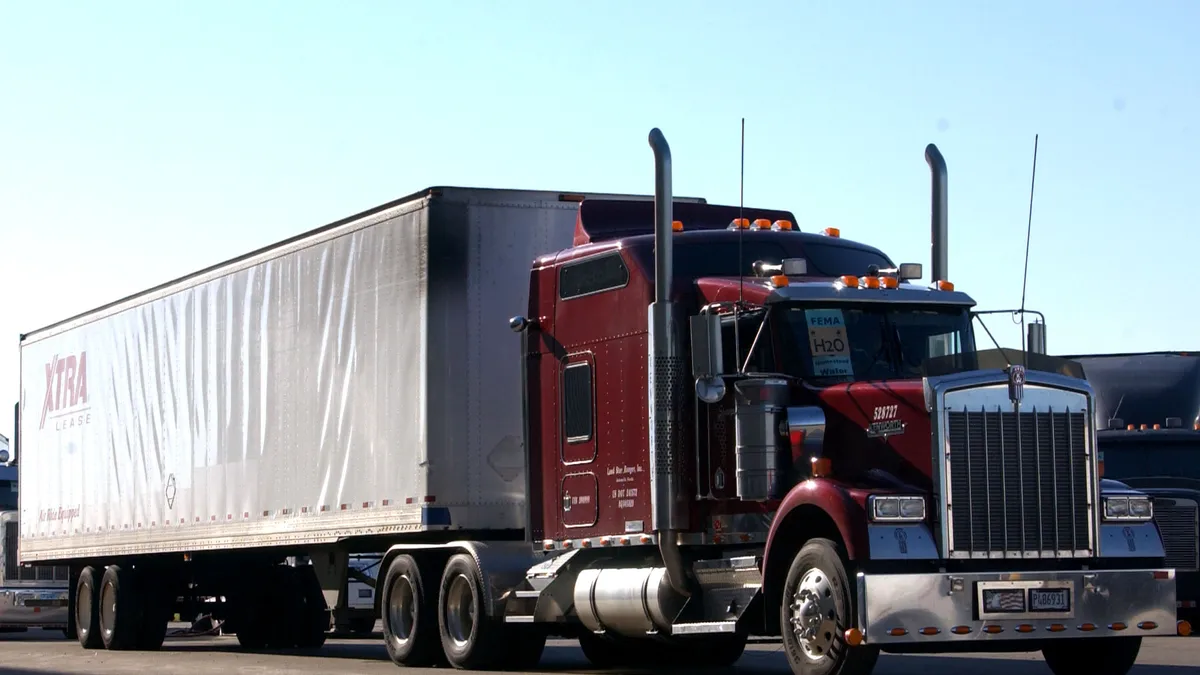Dive Brief:
- In an apparent reaction to driver shortage concerns, trucker pay is on the rise, according to data from the American Trucking Associations' (ATA) Driver Compensation Study.
- The median salary for a truckload driver on a national route was $53,000 in 2017 — a $7,000 increase over the median annual salary in 2013. The gains were even greater for private fleet drivers, who saw their salary rise from $73,000 in 2013 to $86,000.
- In addition to salary boosts, carriers are also offering signing bonuses to attract new drivers, along with benefits such as health insurance and retirement funds to retain them.
Dive Insight:
The next few months will prove particularly critical for the trucking industry, as enforcement of the electronic logging device (ELD) mandate kicks in April 1 and could alienate both current and prospective drivers.
ATA's data shows carriers are acutely aware of the need to not only attract new drivers, but also retain their current ones. If compensation reaches a high enough point, it could dissuade large swaths of drivers from flocking to the construction and manufacturing industries.
But the money to provide drivers with hefty signing bonuses doesn't grow on trees. For carriers to absorb the additional costs, they might increase spot rates. In a domino effect, the costs are passed on to shippers, who are forced to pay the higher rates to move their goods.
In some cases shippers can increase the price of their goods and allow consumers to absorb the costs — but there's a limit if they want to retain customer loyalty and stay competitive.
The uptick in driver compensation is a double-edged sword for shippers. Increased driver pay could alleviate some of the driver shortage and capacity issues in the trucking industry, resulting in fewer delays for shippers.
But higher transport costs are thinning suppliers' profit margins, with food companies hit particularly hard. In a recent earnings call, General Mills blamed high freight costs for disappointing profit performance. "Higher freight costs are impacting our raw material prices, as well as the cost to ship materials from our suppliers to our factories," CEO Jeffrey Harmening said.
A large company like General Mills likely has enough capital to recover from higher costs. But for smaller shippers, truck driver pay could hurt more than help, especially if it means higher, unsustainable transport rates.















